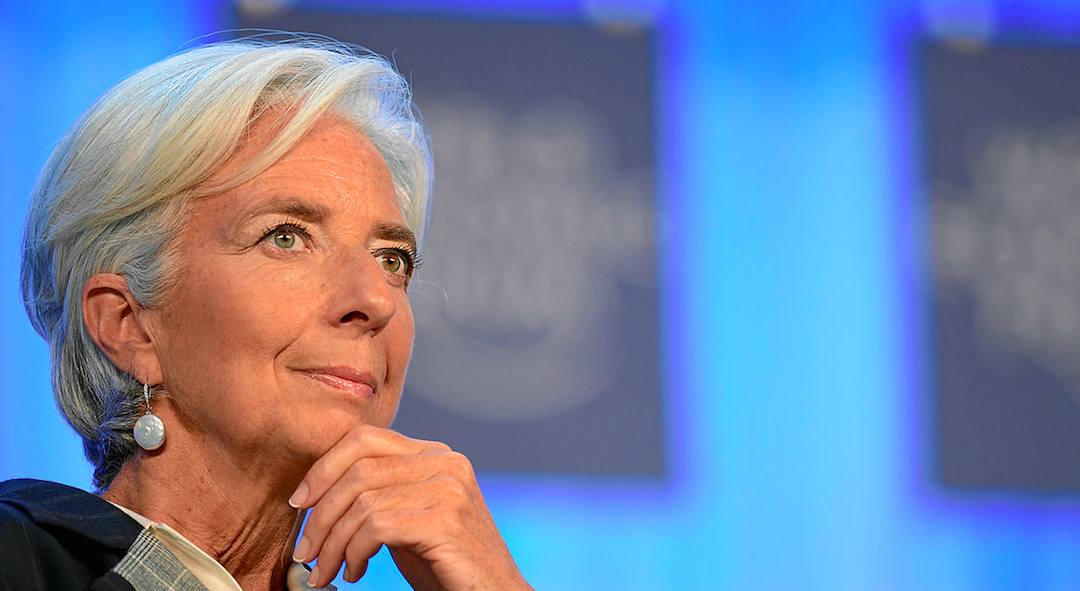International Monetary Fund head Christine Lagarde said central banks around the world should consider issuing digital currency.
The conversation on central bank digital currencies is moving fast. The idea is being taken seriously by some of the other world’s most important policymakers, as reflected by the Riksbank‘s latest report on e-krona, and comments in the recent weeks from the European Central Bank board member Benoit Coeure, as well as two Bank of England deputy governors. Even the IMF is jumping into the debate.
Speaking at a conference in Singapore on 14 November 2018, the Managing Director of the IMF, Christine Lagarde, suggested “there may be a role for the state to supply money to the digital economy.”
Lagarde pointed out at the benefits of such proposal:
“The advantage is clear. Your payment would be immediate, safe, cheap, and potentially semi-anonymous. As you wanted. And central banks would retain a sure footing in payments. In addition, they would offer a more level playing field for competition, and a platform for innovation. Meanwhile, your bank, or fellow entrepreneurs, would have ensured a friendly user experience based on the latest technologies.”
“More fundamentally, the case is about change—being open to change, embracing change, shaping change,” Lagarde concluded.
This argument largely echoes the conclusions of a report published by the IMF on the same day.
Protection of the payment system
There are many good reasons for introducing digital cash. But perhaps the most obvious one is to protect the payment system as a public service.
Today, physical cash (banknotes and coins) is the only form of money available to the public that is actually created by national central banks and that is not attached to a particular debt from a bank to individuals. When the central bank issues cash, this also creates an income for governments – known as seigniorage. In addition, cash is the only payment system that is entirely free of charge, and accessible to everyone, including those who don’t have a bank account. In fact, coins and banknotes are a valuable public utility service.
Today this public service is at risk of being jeopardized. With the rapid development of private digital payment services, there is a high risk of cash disappearing from mainstream use.
Such behavioral change poses a fundamental question – should our money and payments system be surrendered to the hands of commercial banks and other private interests, or should we provide a public option through a state institution which has more potential for democratic accountability, such as the central bank?
Instead of letting private companies take over the entire payment system, central banks should provide digital cash (which is often referred to as a central bank digital currency or CBDC). Like physical cash, and unlike the money in your bank account, digital cash would be issued by the European Central Bank, rather than by private banks through credit creation, and would be risk-free.
Implementation of digital cash
Sadly, the ECB seems very slow in investigating this idea, and even less likely to implement it.
For example, the ECB’s board member Benoit Cœuré has repeatedly warned that a CBDC would deepen the risk of a “digital bankrun.” With CBDC, people could convert their bank deposit into central bank money, which would undermine the financial position of banks.
From Positive Money’s viewpoint, this is a feature, not a bug. The possibility for consumers to move their money out of the private banking system would indeed force the banking sector to adopt more sustainable and less leveraged business models. For example, banks could move towards a “narrow banking” model where banks would lend more responsibly and offer better remuneration for deposits. This would be a positive development for a more stable financial system, but also in terms of increasing competition between banks. Digital cash also reduces the need for the current state protection of the banking system through deposit insurance.
In a letter by Mario Draghi to a member of the European Parliament, the ECB also justified not considering digital cash because they estimate that the use of euro coins and banknotes is still growing.
However, this can change rapidly, especially in countries where people are more prone to embrace new technologies. As the Deputy Governor of the Riksbank recently explained in a speech at the Bundesbank, central banks should be prepared for such rapid change:
“We didn’t expect this kind of very rapid change in behavior in Sweden to happen. It has taken us all by surprise, but when people change behavior and the technology is there to facilitate it, you can get surprised. So don’t be too complacent about it, that’s my friendly advice.”
The longer the implementation of a CBDC takes, the higher the risks of a cashless society where digital money is monopolized by private interests.

